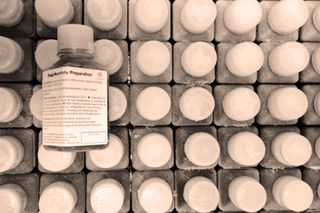
Studying the Indian Gut Microbiome Could Change The World’s Understanding of Health
Indian scientists may soon have the funding to do so.

The International Conference on Microbiome Research in Pune, which just concluded yesterday, marks an exciting moment in global health research. As the Indian Express reported, Dr Shekhar Mande, director-general of the Council of Scientific and Industrial Research (CSIR), is optimistic that a Rs 150-crore proposal to map the Indian microbiome will soon be approved.
The human microbiome is the aggregate of all bacteria that live on our skin and inside our bodies, which help regulate the healthy function of many physiological systems. Because of its role in human immunity, in particular, research on the microbiome — especially the gut microbiome — has exploded in recent years, with a lot of work focusing on the link between the gut microbiome and hard-to-treat auto-immune disorders.
However, most of this research, as well as the attention and funding, is focused in the West; microbiome research in the developing world has lagged behind due to resource constraints or more pressing priorities. And that has resulted in a seriously flawed, or incomplete, understanding of the human body. Because if all the microbiomes we have published research on are Western, we only have insight into Western microbiomes and their impact on Western bodies.
Read more: How the Infant Microbiome Shapes Kids’Long-Term Health
The gut microbiome is notoriously specific: it varies based on mother’s diet, whether you were born by C-section or vaginally, the place you live, the food you eat, whether you have contact with animal microbiomes from pets or livestock, and a variety of other factors. In essence, your gut microbiome is a complex reflection of the various microbial experiences and contact you’ve had throughout your life. The problem with only studying Western gut microbiomes in detail is that they only represent those countries’ microbial environments, diets, and habits.
In fact, recent research suggests that Western environments and diets have become dramatically less diverse from a microbial perspective, leading to the extinction of certain microbial groups in Western guts. These changes may impact immunity, and may even account for the rise in the incidence of autoimmune diseases in the West — which appear to be far more prevalent there than elsewhere in the world. But so far, these are hypotheses, supported only by a partial understanding of how our gut microbiomes have been affected by modern lifestyle factors such as processed foods.
Gut microbiomes in developing countries, by contrast, are known to be more diverse because they have been less affected by the various factors of a Westernized lifestyle (sterile homes, antibiotics, processed foods) that have potentially killed off entire species of bacteria. With a significant investment in building a robust biobank of Indian gut microbiomes, we can develop a better understanding of how a more “untouched” gut microbiome looks. We can also start mapping incidence of disease across those microbiomes, potentially offering clues into potential cures for some diseases that aren’t currently well understood — assuming we build this collection before imported food and Western lifestyles homogenize the global gut.
Related


Probiotics Won’t Ease Kids’ Stomach Infections
